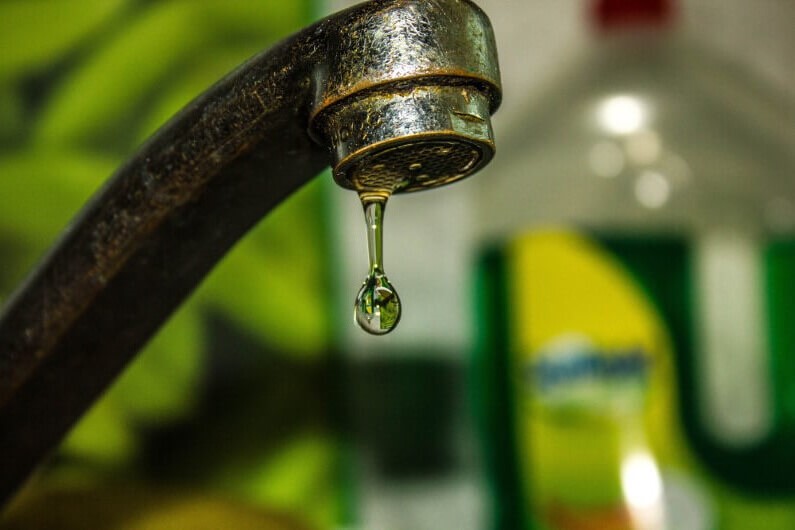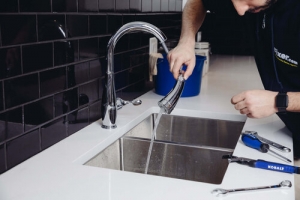How It's Essential to Deal with a Broken Faucet
How It's Essential to Deal with a Broken Faucet
Blog Article
Everybody maintains their unique piece of advice with regards to Why Are My Faucets Dripping (And Can I Fix It Myself)?.

Leaking faucets may appear like a small aggravation, however their effect exceeds just the inconvenience of the noise. From wasting water to incurring unneeded monetary expenses and health risks, ignoring a trickling faucet can result in various effects. In this short article, we'll look into why it's vital to resolve this common household concern quickly and properly.
Wastage of Water
Ecological Influence
Leaking faucets add substantially to water wastage. According to the Environmental Protection Agency (EPA), a single tap trickling at one drip per second can lose greater than 3,000 gallons of water per year. This not only pressures water resources yet additionally affects ecosystems and wildlife based on them.
Financial Prices
Increased Water Bills
Beyond the environmental impact, dripping taps can blow up water expenses considerably. The gathered wastefulness with time converts right into higher utility expenses, which can have been avoided with timely repair work.
Potential Home Damage
Moreover, long term trickling can bring about harm to components and surfaces bordering the tap. Water build-up can create staining, deterioration, and also structural concerns if left unattended, leading to added repair expenses.
Wellness Issues
Mold And Mildew and Mold Development
The continuous existence of wetness from a leaking tap produces a suitable atmosphere for mold and mildew growth. These fungis not just jeopardize indoor air quality however also pose wellness threats, especially for individuals with respiratory system problems or allergies.
Waterborne Conditions
Stationary water in dripping taps can become a breeding place for germs and other microorganisms, increasing the threat of waterborne illness. Impurities such as Legionella bacteria thrive in stagnant water, potentially bring about serious diseases when consumed or breathed in.
DIY vs. Specialist Fixing
Benefits and drawbacks of DIY Repair Work
While some might try to take care of a trickling tap themselves, DIY repair work come with their very own collection of difficulties. Without correct knowledge and devices, DIY efforts can intensify the concern or result in insufficient repair work, extending the issue.
Benefits of Working With a Professional Plumber
Hiring a professional plumber makes sure that the underlying cause of the dripping faucet is dealt with properly. Plumbers have the experience and equipment to diagnose and fix tap problems efficiently, saving time and decreasing the risk of additional damages.
Step-by-Step Guide to Dealing With a Dripping Faucet
Tools Required
Before attempting to repair a leaking faucet, gather the needed devices, including an adjustable wrench, screwdrivers, replacement parts (such as washers or cartridges), and plumber's tape.
Common Faucet Issues and Their Solutions
Recognize the sort of faucet and the specific issue creating the drip. Usual issues include worn-out washing machines, rusty valve seats, or damaged O-rings. Refer to maker guidelines or on-line tutorials for detailed guidance on repair services.
Preventive Measures
Regular Maintenance Tips
To stop trickling taps, do routine upkeep such as cleaning aerators, checking for leakages, and replacing worn-out parts quickly. Furthermore, think about mounting water-saving devices or updating to more reliable components.
Relevance of Prompt Services
Resolving trickling faucets as soon as they're noticed protects against more water waste and possible damages, ultimately conserving both water and cash in the long run.
Influence On Residential Or Commercial Property Worth
Understanding of Well-Maintained Home
Maintaining a property in good condition, consisting of addressing upkeep problems like trickling faucets, improves its regarded value and value amongst potential purchasers or occupants.
Impact on Resale Value
Qualities with well-maintained plumbing components, consisting of taps, command greater resale values in the realty market. Attending to trickling taps can add to a favorable impression during property assessments and negotiations.
Ecological Responsibility
Private Payment to Conservation
Taking obligation for taking care of trickling faucets lines up with wider initiatives towards water conservation and environmental sustainability. Every individual's activities jointly make a substantial impact on preserving precious resources.
Sustainable Living Practices
By prioritizing prompt repair work and taking on water-saving practices, individuals add to sustainable living practices that benefit both present and future generations.
Verdict
Attending to a trickling faucet goes beyond plain benefit; it's a vital action towards preserving water, minimizing economic costs, and securing health and wellness and home. Whether with do it yourself repairs or professional support, acting to take care of trickling taps is a tiny yet impactful means to advertise accountable stewardship of sources and add to a much healthier, extra lasting future.
How to Fix a Leaky Faucet: Step-by-Step Repair Guide
A leaky faucet may seem like a simple annoyance, but if it's not fixed promptly, that leak could cost hundreds to potentially thousands. From water damage to mold, mildew, and high water bills, even a tiny leak can be catastrophic if left unattended. Damage like this can even affect the overall value of your home, so it's important to take the right approach for leaky faucet repair. You may need the help of a plumber in some cases, but we've got a few tips you can try on how to fix a leaky faucet before calling the pros.
Four Faucet Types
When you're learning how to fix a leaky faucet, the first step is knowing what kind of faucet you're working with! There are four common types.
Cartridge Faucets
Cartridge faucets come in one- or two-handled varieties. In one-handled cartridge faucets, hot and cold water combines in a single cartridge. In the two-handled versions, hot and cold water are controlled separately and mixed in the faucet.
Ball Faucets
Ball faucets have a single lever you push up and down to adjust the pressure and rotate to change the temperature. A slotted metal ball controls the amount of water allowed into the spout.
Compression Washer Faucets
They're the oldest type of faucet, but they're still used in many homes — especially older ones. Compression faucets have two separate handles that, when turned, raise or lower the washer that seals a water valve. This valve stops water from flowing through the faucet when it is turned off.
Disc Faucets
Disc faucets rarely need to be repaired due to their maintenance-free design. The water flow is controlled by two discs — the upper one raises and lowers against a fixed lower disc, creating a watertight seal. If your disc faucet starts leaking, you may need to replace the seals or clean residue buildup from the inlets.
Fixing a Leaky Faucet
Step 1: Turn Off the Water
Whether you're learning how to fix a leaky bathtub faucet or how to fix a leaky kitchen faucet, always turn off the water supply to your working area when you're fixing a leak. The last thing you want is a flood added to your list of things to fix.
Look for the shutoff valves below your sink or around the tub and turn them clockwise to stop the water flow. If your faucet doesn't have shutoff valves, you may need to turn off the water for the whole house. Check to make sure it's off by turning the faucet on. If nothing comes out, you're ready to start the repair.
Step 2: Take Apart the Faucet
How you disassemble your faucet depends on the type of fixture you have. You can use a flathead screwdriver to remove the caps on top of the handle or handles for cartridge and compression faucets. Inside, you should see handle screws. Unscrew these with a screwdriver to remove the handle.
Disc- and ball-style faucets will typically have an inlet screw near the handle, and removing that will reveal the interior of the faucet.
Detach the Valve Stem
For cartridge- and compression-style faucets, you'll see the inner valve stem or cartridge once you remove the faucet handles. If you have a compression faucet, unscrew the brass valve stem. If you have a cartridge faucet, pull out the cartridge. If your cartridge has been in place for a while, it may require some tools or extra force to remove it due to mineral deposits.
Examine and Replace Parts
Once you've removed the parts, check them out to confirm what needs to be replaced. You may see corroded rubber washers, O-rings, stems, or cartridges. On a ball-style faucet, check the seats and springs for damage.
If you need to repair a leaky disc faucet, check the inlet and seals on the lower disc.
Once you determine what parts must be replaced, visit your local hardware store. Bring the damaged parts with you to ensure you can purchase the correct components to replace them.
Clean Valves and Faucet Cavity
If you've removed a stem or cartridge, you may notice mineral buildup in the faucet's threads. Use white vinegar to clean the valve seat by soaking it for a few minutes, then scrub it away with a soft toothbrush and rinse with warm water. You can also clean the interior of the faucet in the same way.
Reassemble the Faucet
Once your faucet is cleaned and the required parts have been replaced, it's time to reassemble it. Put the pieces back together and slowly turn the water supply back on. Doing this slowly is crucial because too much initial water pressure can damage the new hardware you've just installed.
https://homewarranty.firstam.com/blog/how-to-fix-leaky-faucet

I was shown that article on What Causes Leaky Faucets & How To Fix Them from a pal on another web property. Are you aware of somebody else who is excited by Leaky Faucets: Why They Happen & What to Do About Them? Why not promote it. I am grateful for your time. Come back soon.
Report this page